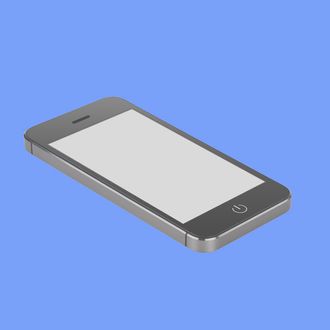
A therapist is just one person, and can only be in one place at a time. Even if you’re one of the few mentally ill people lucky enough to have a good relationship with a mental-health professional (or professionals), 99 percent of the time, they won’t be around. It’s no wonder that many overworked counselors, psychiatrists, and psychologists have to deal with a relatively high volume of calls and voice-mail messages from their patients.
A new smartphone-based app from Tel Aviv University aims to increase mental-health professionals’ reach by using smartphones to better monitor their clients at a distance.
Researchers conducted two Helsinki-approved clinical trials with the cooperation and direction of leading psychiatrists from Geha Mental Health Center and Be’er Ya’acov Mental Health Center. In the trials, the application was installed on the smartphones of 20 patients suffering from bipolar, unipolar/depressive, or schizo-affective disorders, as well as on the phones of 20 healthy participants. Over the course of six months, the app acquired data from patients’ phones and sent the information to distant computers, where advanced algorithms analyzed the data to detect changes in patients’ sleep, communication, mobility, and vocal patterns. The researchers further developed a visualization system that displayed the summarized information to psychiatrists, providing them with instant insight into the behavioral trends of their patients.
It’s easy to see the promise of this sort of technology, even from just a strict resource-management sense: The more real-time information clinicians have about how a given patient is doing, the quicker and more efficiently they’ll be able to respond. Moreover, an app like this could, as the press release puts it, “[afford] patients much-needed independence from hospitals, clinicians — and even family members.”
The potential downsides are a bit more complicated. Each of them, of course, has to be weighed again the stress and pain and emotional anguish of severe mental illness, both for the patient and his family. So none of the below concerns should be taken, on their own, as an argument against this sort of technology.
That said, it’s not hard to imagine scenarios in which people react poorly to the notion of “tracking” the mentally ill, especially in so intimate a manner as having a device transmit so much information about them every moment of every day. The release points out that this particular app granted patients control over who saw what data and ignored their texts and phone calls completely, but will its future iterations have the same safeguards? Moreover, can you effectively track a patient without examining the content of his text and voice communications?
More broadly, while no one is explicitly arguing that such an app should constitute a replacement for mental-health professionals, there’s at least some risk it could be used in this way. The U.S., after all, is in something of a crisis when it comes to the treatment of the mentally ill. What will happen when it becomes easy to install this sort of app on a client’s phone and quickly usher him out the door?
A lot of this data won’t mean all that much without a bit of interpretation and intervention from one of the aforementioned overworked professionals. In other words: Okay, a bipolar patient tends to have manic episodes on Wednesday nights. What’s causing them? What can be done to ameliorate them? All of this requires time-intensive human work, and in some cases, the app will be providing information interview-based techniques could have uncovered just as easily. (The counter-argument, of course, is that if the choice is between someone with mental illness having no access to mental-health specialists — all too common an occurrence — and at least being able to carry around a phone that someone, somewhere will monitor if things start to go south, the latter would be preferable.)
Again — these aren’t full-blown arguments against this sort of technology. But before it fully arrives, it’s important to develop a better idea of exactly how mental-health professionals should integrate this technology into existing diagnostic and treatment practices.




